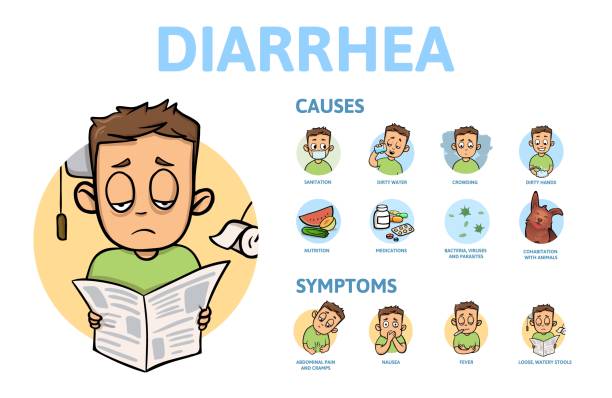Diarrhea is a common health issue that affects millions of people around the world. It is a condition in which a person experiences frequent, loose, and watery bowel movements. While it is not usually a serious condition, it can be uncomfortable and can lead to dehydration if left untreated. In this blog post, we will explore the causes, symptoms, and treatments of diarrhea.

Causes of Diarrhea
Diarrhea can be caused by a variety of factors, including:
-
Viruses: Viral infections, such as rotavirus, norovirus, and adenovirus, are a common cause of diarrhea, especially in children.
-
Bacteria: Bacterial infections, such as salmonella, shigella, and E. coli, can cause diarrhea.
-
Parasites: Parasitic infections, such as giardia and cryptosporidium, can also cause diarrhea.
-
Medications: Certain medications, such as antibiotics, can cause diarrhea as a side effect.
-
Food intolerance: Some people may experience diarrhea after consuming certain foods that their body cannot tolerate.
-
Inflammatory bowel disease: Conditions such as Crohn's disease and ulcerative colitis can cause chronic diarrhea.
Symptoms of Diarrhea

The symptoms of diarrhea include:
-
Frequent, loose, and watery bowel movements
-
Abdominal cramps and pain
-
Nausea and vomiting
-
Dehydration, which can lead to symptoms such as dry mouth, thirst, and decreased urine output
-
Fever, in some cases
Treatment of Diarrhea
The treatment of diarrhea depends on the underlying cause. In most cases, diarrhea will resolve on its own within a few days without any treatment. However, there are several things you can do to manage the symptoms and prevent dehydration:
-
Stay hydrated: Drink plenty of fluids, such as water, clear broth, or an electrolyte solution like Pedialyte, to replace lost fluids.
-
Avoid certain foods: Avoid foods that can make diarrhea worse, such as fatty, greasy, or spicy foods, caffeine, alcohol, and dairy products.
-
Rest: Rest and avoid strenuous activity until you start feeling better.
-
Over-the-counter medications: Over-the-counter medications, such as loperamide (Imodium) and bismuth subsalicylate (Pepto-Bismol), can help reduce the frequency and severity of diarrhea. However, these medications should not be used by children, pregnant women, or people with certain medical conditions without first consulting a healthcare provider.
When to Seek Medical Attention
In most cases, diarrhea will resolve on its own within a few days without any complications. However, you should seek medical attention if you experience any of the following:
-
Severe or bloody diarrhea
-
Signs of dehydration, such as dry mouth, thirst, and decreased urine output
-
High fever
-
Abdominal pain that gets worse or does not improve
-
Persistent diarrhea that lasts more than a few days
In conclusion, diarrhea is a common condition that can be uncomfortable and sometimes even dangerous. By staying hydrated, avoiding certain foods, and resting, you can manage the symptoms and prevent dehydration. However, if you experience severe or persistent diarrhea, you should seek medical attention to ensure that there are no underlying health issues that need to be addressed.












